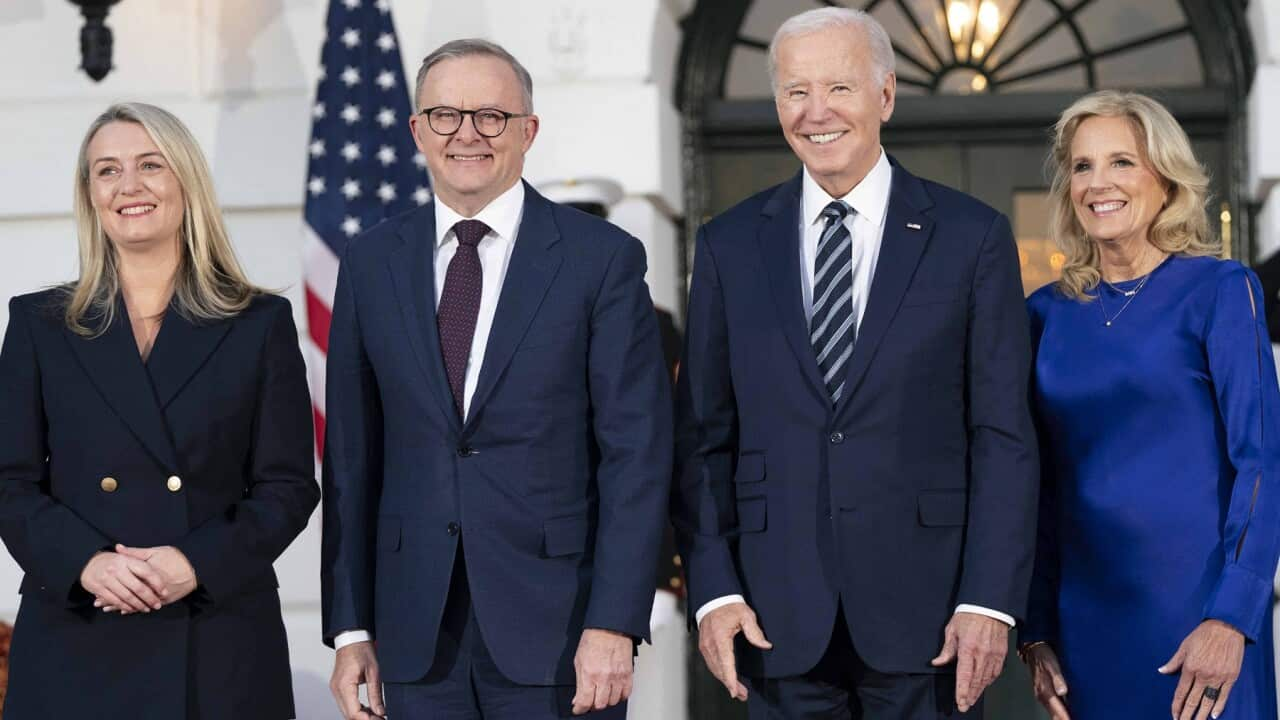TRANSCRIPT
Prime Minister Anthony Albanese has announced a boost in government credit for projects to mine and process critical minerals - including key components used in electric car batteries - while on a visit to the United States.
"In Japan, in May, Australia and the United States made history when we signed the compact on critical minerals and clean energy between myself and President Biden. This week, we're working to turn words on a page into commercial realities. Yesterday was the inaugural meeting of the Australia-US Taskforce on Critical Minerals that arose from that compact. Its responsibility is to expand reliable, responsible and secure global access to critical minerals."
Critical minerals include so-called "rare-earth elements" - used in products like wind turbines and satellites - as well as cobalt and lithium, common in batteries that are in electric vehicles and gallium, used in the production of smart phones.
Mr Albanese says an extra $2 billion in financing will double the capacity of the Critical Minerals Facility - managed by the government's Export Finance Australia (EFA) agency - to back Australian critical minerals projects.
"This provides financing to strategic critical minerals projects to support the energy transition. And today I've announced a doubling of that from $2 billion to $4 billion. The $2 billion was already pretty much allocated, but that's supplemented as well by other funds that we have available and national reconstruction fund and others as we're looking at, not just new industry, and investment, looking at mitigating risk looking at how we value add, looking at the skills area as well. When you combine all of that we have approaching $6 billion available to support industry going forward."
Mr Albanese says it's not just about the mining of these resources.
"We'll continue to do what is necessary to not just look at providing support for extraction, if you like, of our resources, but value-adding as well. That's the big next step that we need to do. Because that's where the jobs really come from. And I want to see us really move up that value chain."
The government sees these minerals as critical to the transition to net zero emissions, as well as boosting the economy through supply of these minerals to the manufacturing sector in both Australia and the United States.
Resources Minister Madeleine King says co-operation with US industry and scientific agencies is important.
"We have an urgent task ahead of us to develop the critical minerals and rare earth elements of Australia so that we can contribute to the net zero emissions goals of both United States and of course, also our country but also our region in which Australia is in the Indo Pacific. These are very important goals and Australia has with its natural geology, an extraordinary opportunity to make the most of that for the benefit of our economies, but mostly for our citizens, and our workers in that great new adventure of developing the critical minerals and rare earth, industry of our country for the benefit of all."
According to US statistics, about 63 per cent of the world's rare earth production occurs in China while Australia is the leading global producer and exporter of lithium.
Professor Sheikh Rahman is with the School of Minerals and Energy Resources Engineering at the University of New South Wales.
He welcomes the Prime Minister's funding announcement.
"It is good news for us, because we've got more resources are available for us from the government side, so sure, it is good news for us. Critical minerals, it's so important these days as there's a huge shortage of these critical minerals, and we are one of the luckiest countries to have the majority of these critical minerals."
The Professor says the announcement is timely.
"It came in a good critical time, I must say. The world is going through a lot of issues at the moment, and the next phase will be, who has the upper hand in terms of exploiting the critical minerals. In that space, Australia is very, very fortunate, that it can muscle its political expertise and bring a lot of parties together and support that we believe in. The order, you know, that all western democratic countries believe in."













